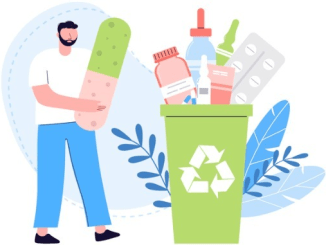
Maria Nilsson and colleagues argue that reducing the severe health risks created by the climate crisis requires political commitment and funding such as that mobilised to limit the spread of COVID-19
CREDIT: This is an edited version of an article that originally appeared on The BMJ
The COVID-19 pandemic, is hopefully, a short-lived global crisis adding to existing global challenges arising from human behaviour, particularly the ongoing environmental and climate crises. Strict measures to control COVID-19 were introduced rapidly in almost all countries, showing that the global community has the ability to prioritise health. International collaborations set immediate priorities to control COVID-19, including mobilising large financial resources. National decision-makers proved ready to make far-reaching decisions about finances, and restrictive measures, which were largely accepted by citizens despite initially limited scientific evidence on effectiveness.
This response is in sharp contrast to the insufficient political willingness to act on the climate crisis, with global carbon emissions continuing to rise, despite longstanding international agreements to reduce them. Although the COVID-19 pandemic is an acute global health threat that needs immediate action, climate change is likely to be a larger global public health threat in the medium and long term.
If the world’s greenhouse gas emissions, and anthropogenic pollution, follow current trends, each additional unit of warming is projected to have primarily negative consequences for human and natural systems, including the upstream drivers of health. Reflections on the COVID-19 pandemic can inform and boost the development of the critical policies and action needed to overcome the existential environmental and climate change crises.
A healthy population is at the heart of most transformations needed to achieve global sustainable development. The guiding principle behind sustainable development is that humanity should meet the needs of today without compromising the ability of future generations to meet their needs. Numerous challenges must be overcome to reach the UN sustainable development goals, which set out the priorities and resources required to facilitate global cohesive action. These commitments for sustainability entail an uncompromising responsibility towards the world’s young people, which will be even more important as countries recover from the effects of COVID-19.
Natural experiment
The COVID-19 pandemic can be viewed as a natural experiment, showing that social change is possible with rapid cohesive international action, priority setting and mobilisation of financial resources. Government lockdown policies to prevent the spread of COVID-19 reduced travel, industrial production and energy generation which, in turn, decreased the greenhouse gas emissions that drive climate change and the presence of air pollutants.
In April 2020 daily global CO2 emissions were 17% below the mean level in 2019, although levels rose again once restrictions were relaxed. A recent estimate from the global carbon project suggested a seven per cent fall in global CO2 emission from fossil fuel and industry for 2020. Despite this, earth overshoot day – the date when nature’s budget for the year is exhausted by humanity – was reported on 22 August 2020.
The global community should learn from this, and design COVID-19 recovery plans that protect vulnerable groups, mitigate climate change, focus on meeting temperature targets set in the Paris agreement, reduce air pollution, increase the resilience of health systems and strengthen opportunities for green development.
Critical global health leadership and action at all levels
The World Health Organization (WHO) has had a vital role in the COVID-19 pandemic. The organisation also had an important role in the eradication of wild polio from the African continent in 2020 – which is one of the largest public health successes since the eradication of smallpox. WHO now needs the support of member states to strengthen its ability to deal with future pandemics and health crises, giving it a broader mandate in collaboration with other UN environmental and development agencies.
WHO’s leadership is essential in counteracting the environmental and climate crises because, like COVID-19, it requires both short and long-term policies, monitoring systems and co-ordinated responses from national governments, the business sector and society at large.
The International Monetary Fund has also had a key role during the pandemic, supporting financial order in member countries. Raising funds has not been the problem; governments around the world, in a few months, deployed around $10tn to respond to the pandemic. They now have to invest continued funding wisely, putting green solutions at the forefront.
The World Bank will also be important in supporting post-pandemic economic development and social progress in low and middle income countries. International solidarity, global collaboration and global governance through our United Nations, development, non-governmental and other organisations will be essential. Weak international partnerships reduce confidence and trust, resulting in fewer solutions and making it unlikely that the sustainable development goals will be achieved.
Climate change will affect the ability of health systems to function effectively – particularly when climate extremes are combined with existing and emerging health challenges, including outbreaks of infectious disease. COVID-19 has highlighted weaknesses in health systems, and put a spotlight on inequities that have long persisted but received insufficient attention. Without prompt and effective climate change action, taking vulnerabilities and inequities into consideration, the problems are projected to worsen considerably.
Throughout the pandemic, national decision-makers have proved willing to make decisions with far-reaching consequences. We now have to make use of this crisis and implement actions to protect people and the planet.
The commitments for sustainable development are a responsibility for decision-makers at all levels; action now will improve the health of both current and future generations.


Be the first to comment